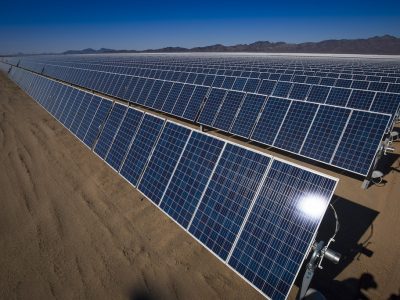Why Did Mono Lake Become a Cause Celebre?
 Why did saving Mono Lake become such a potent political issue during the late 1970’s and early 1980’s? For a book I am currently writing on the case, that is a critical question.
Why did saving Mono Lake become such a potent political issue during the late 1970’s and early 1980’s? For a book I am currently writing on the case, that is a critical question.
After all, hundreds of groups — hundreds of environmental groups — seek media oxygen for their cases all the time. Both nationwide and particularly in California, Mono Lake stood out: more than deforestation, or desertification, or the expansion of national parks, or urban stormwater runoff, or a whole host of things. What caused it? The standard explanations or most usual suspects do not seem adequate to me:
- The nature and beauty of the resource. Maybe, but consider me skeptical. Don’t get me wrong: I love Mono Lake. But compared to a lot of other resources, it does not necessarily stand out. Besides, scholars have long identified “charismatic megafauna” as the touchstone of popular support of environmental causes. I like seagulls as much as the next guy, but they don’t count.
- The accessibility of the resource. One could argue that when people are confronted with the loss of something they are used to, it affects them more deeply (aka the “endowment effect”). But this of course cuts against Mono Lake: it’s far away from most population centers. I would be willing to gamble that most of the people who sported the famous bumper stickers had no idea where it was.
- The sophistication of the Mono Lake Committee. There is something to this: the members of the Committee were indeed savvy players. But it’s hard to stack them up against a lot of the mainstream environmental groups such as the Sierra Club, NRDC, EDF, or Friends of the Earth. Part of the charm of the Mono Lake story is how a ragtag group took on powerful players and won.
- Backing of key political players. I haven’t seen it yet. California’s Governor during the 70’s as now was Jerry Brown, who was a dedicated environmentalist at least at the time. But he was focused on things like the Coastal Commission and to a lesser extent, the Santa Monica Mountains Conservancy. I have yet to see him advocating for this. Ditto California’s environmentalist Senator Alan Cranston, who real passion was the expansion of the Redwoods National Park. What about California’s other Senator, S.I. Hayakawa? Please.
So what was it? I have another theory: the enemy.
Scholars and politicians have long known that it is easier to organize someone against a threat than for a benefit. (There’s that endowment effect again). This is why I get dozens of e-mails from environmental groups about threats to ANWR. It’s why the Tea Party could organize so effectively against Obamacare. I’m quite active in the Jewish community, and it’s far easier to support Holocaust memorials and alleged anti-Semitism than to support Jewish Community Centers or scholarships for needy students.
And who, or what, was the threat to Mono Lake? The supposedly great environmental villain: the City of Los Angeles and its Department of Water and Power. Everyone “knew” (inaccurately) that Los Angeles had stolen its water from the Owens Valley. Everyone (in northern California, at least) “knew” that Los Angeles was the fleshpot of the state, if not the country. Even in the Bay Area “knew” that somehow Los Angeles had stolen statewide primacy from beloved San Francisco. It didn’t help, of course, that the Los Angeles Department of Water and Power, widely perceived as arrogant, insensitive, and reactionary, actually was arrogant, insensitive, and reactionary.
There might also have been more rational pecuniary causes that underscore the relevance of the enemy. In the mid-70’s, the Mono Lake Committee was able to garner literally tens of thousands of dollars in pro bono legal assistance from high-powered San Francisco law firms. Why was that? Well, partly because they were from San Francisco and thus hated Los Angeles. But partly it was because the adversary was a governmental entity that had its own City Attorney’s office. Thus, private law firms ran no risk of alienating corporate clients by signing on, and even no risk of losing government work by suing a city. As my colleague Scott Cummings has shown, this dynamic is one reason why private law firms so enthusiastically take on death penalty work: they aren’t risking anything to their bottom line.
Of course, the primacy of the enemy is one major reason why climate change has not taken off as a political issue. There is no one single, diabolical enemy to attack. And to the extent that there is, we find ourselves back with the classic Pogo cartoons of the 1950’s: we have met the enemy, and he is us.








One Reply to “Why Did Mono Lake Become a Cause Celebre?”
Comments are closed.